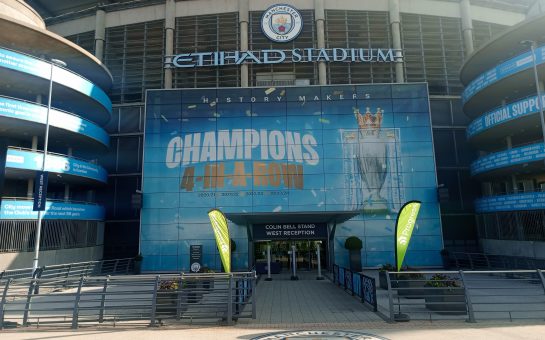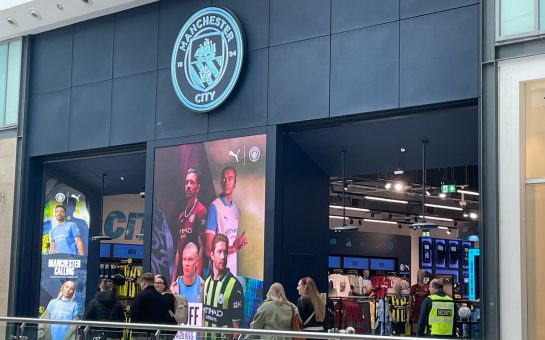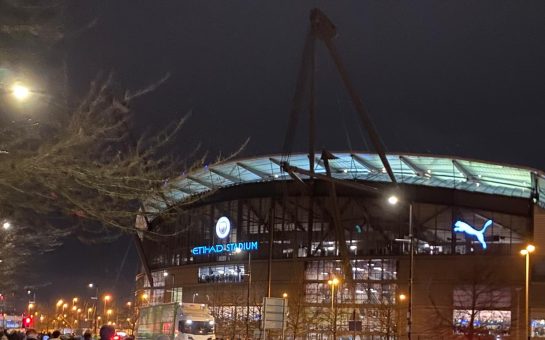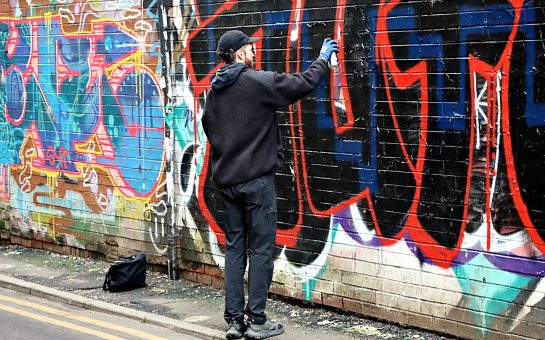It was meant to be the night when Manuel Pellegrini’s Manchester City side came of age.
Barcelona arrived in Manchester under a bit of pressure after a recent stumble in the Spanish league and many felt this was the Blues’ big chance to prove themselves on the biggest stage of all.
But ultimately, Martin DeMichelis’ red card effectively ended the contest and has given City a mountain to climb in the second leg after a 2-0 defeat.
After a night of incident at the Etihad Stadium MM picks out five talking points from the titanic Champions League encounter.
Martin DeMichelis
The name of a certain Argentine would have undoubtedly sent a shiver down the spines of all City fans when viewing the starting line-ups prior to kick off. That name was Martin DeMichelis.
Manuel Pellegrini’s selection of a man who has been found wanting against bog standard Premier League sides this season was always going to be a risk. So it was little surprise that he struggled to keep arguably the most talented forward line in world football under wraps.
While it was the erroneous decision of Vincent Kompany to drop back that played Lionel Messi onside, DeMichelis should have known better than to go to ground against one of the quickest players on the planet when he knew anything other than an inch perfect tackle would result in a red card.
For all his flaws as a player, DeMichelis played in the final of the Champions League for Bayern Munich in 2010 and has played in World Cups for his country and one would think a man of his experience would have refrained from making such a rash challenge.
Although the defender’s attempt at a tackle was outside the penalty area and a penalty was incorrectly awarded, it was the reduction to ten men rather than the penalty that was more damaging to City’s chances. Even if a penalty had not been awarded the chances of them holding Barca at bay with ten men for the remainder of the game were slim – as Dani Alves’ late goal proved.
Victor Valdes
Although the officials treated him with kid gloves for the majority of the game – seemingly anyone who stood within a five-yard radius of the Barcelona goalkeeper would be penalised for a foul – the Spaniard’s performance showed that for all his abilities as a shot-stopper, how to deal with crosses remains a grey area.
Valdes often looked hesitant when having to deal with an aerial ball and if City are to mount a come-back in the Nou Camp in March then crosses and set-pieces will be useful weapons for Manuel Pellegrini’s side.
Gerrard Pique and Javier Mascherano’s vulnerability
There was a moment in the first half where Alvaro Negerdo shrugged off Gerrard Pique before flashing a shot across goal. In the build up to that chance there was no doubt that City’s number nine would be the man to win the duel for the ball.
While a combination of Barcelona’s early dominance and then DeMichelis’ sending off prevented Negredo from having as much influence on the game as he would have liked, there was enough evidence to suggest that the striker’s blend of power and technique could unsettle Pique and his partner Mascherano at the back.
Converted from his preferred holding midfield role to a centre-back at Barcelona essentially because of his inferior ability on the ball to Sergio Busquets in his favoured position, Mascherano at times demonstrates why playing in the centre of defence is not his natural position.
He can be particularly vulnerable in the air which on top of Valdes’ susceptibility, gives the Blues all the more reason to try put more crosses in the second leg.
Dani Alves
The Brazilian is a right winger who masquerades as a right back.
Yet at times he is one of Barcelona’s most effective players in forward areas – as he proved with his well-taken goal that hurt City late on.
Alves could have easily been on the scoresheet earlier in the second half as well but he dragged a shot wide from a similar position.
Aleksandar Kolarov was deployed on the left of City’s midfield to try and quell his threat going forward, a strategy which like the bulk of Pellegrini’s game-plan was working well until DeMichelis’ foolhardy sending off.
Naturally Alves found himself with more space when the hosts were a man light… and he gleefully exploited the weakness.
In the second leg City must score three times to have any chance of winning the tie outright and may have to think beyond merely stopping Alves as an attacking threat.
For all his forward prowess Alves can be suspect defensively particularly from a positional point of view and if City deploy a more attack-minded player on the left such as David Silva (maybe opening up space in the middle for the return of Sergio Aguero) or Samir Nasri in the second leg they could find it possible to pin Alves back.
The former Sevilla man is not nearly as comfortable running towards his own goal as he is running towards the oppositions.
Lionel Messi
The four-time Ballon D’or winner was kept as quiet as a player of his astronomical ability can be by City in the first half especially.
Yaya Toure and Fernandinho, excellent on his return to the side, did an impressive job of denying the Barca artist par excellence the pockets of space in which he is often at his expressive best.
But alas, even though Messi was by no means at his best last night, a clever piece of movement from the Argentine provided the moment that ultimately decided the tie. He lurked in an offside position before a panicking Vincent Kompany dropped back to play him onside and the clumsy DiMichelis unceremoniously ended his journey towards goal.
From then on he was afforded more space and his influence on the game grew and the fact that City must be bold in the second leg and push for goals in the second leg means this state of affairs is unlikely to change in Catalonia in three weeks’ time.
Unfortunately for the Blues, although they can undoubtedly cause Gerardo Martino’s side problems in the Nou Camp, the task of scoring three goals while at the same time denying Barcelona the space to score themselves, is probably all-but impossible.
Image courtesy of ITV via YouTube, with thanks.



